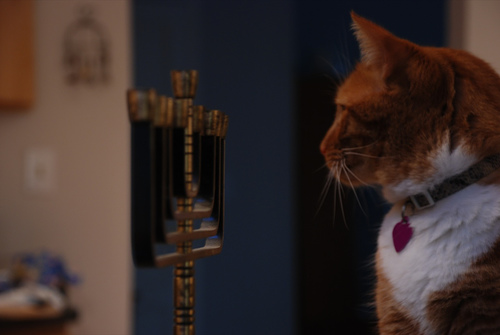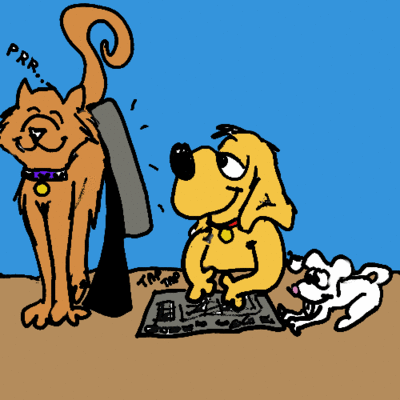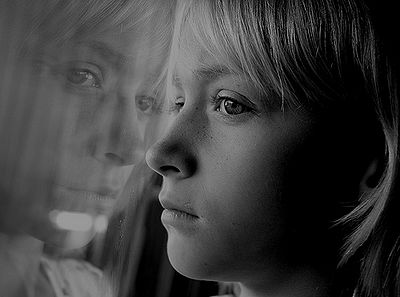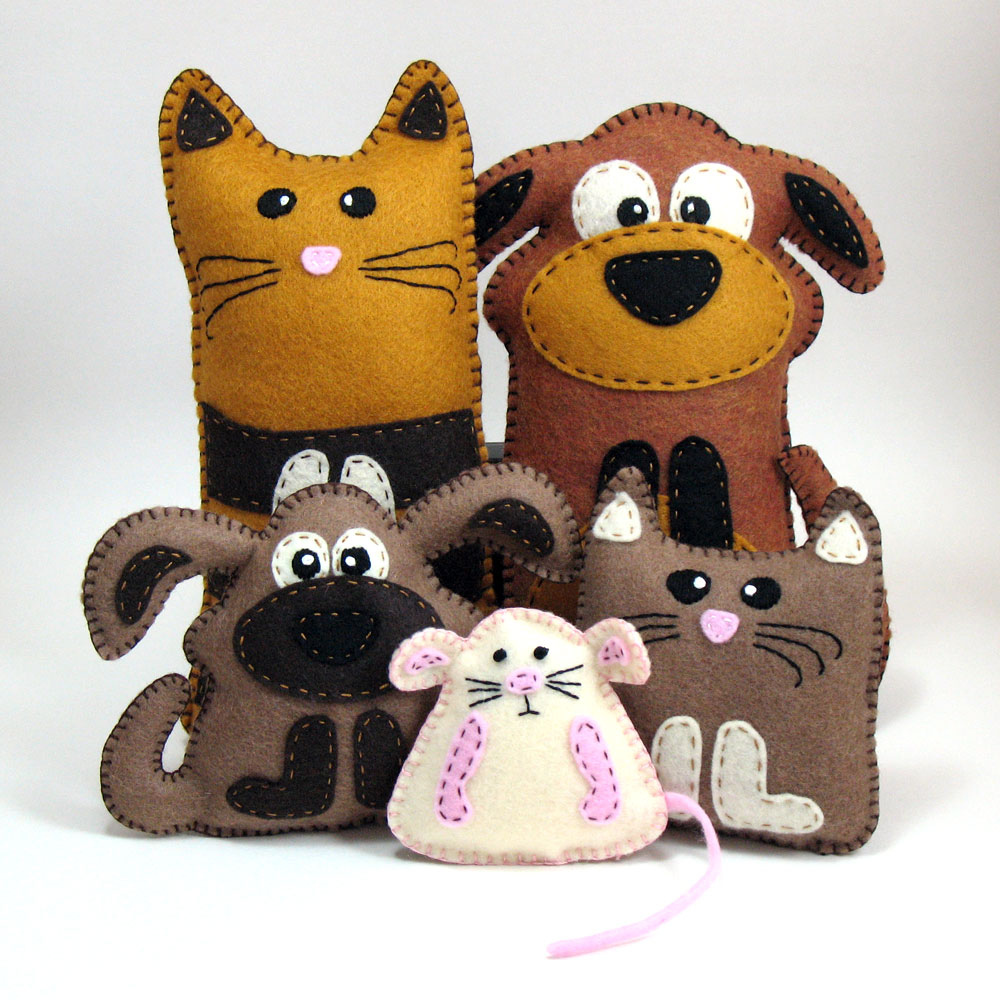
So you’re Jewish and you have pets. What do you need to know:
Feeding animals before you eat
Halacha requires one to feed one’s animals before one eats.
This commandment is so important, that even if one has already washed for bread, one may still interrupt and say “feed the animals” before making the HaMotzi blessing over the bread.
One may however drink liquids before giving ones animals something to drink.
Cruelty to animals
The Torah forbids one to cause pain to animals – and it is a mitzvah to prevent such pain, and even to affirmative cure animals, regardless of whether they belong to a Jew or a Gentile.
However, if an animal is causing harm to humans, or can otherwise be used to help cure humans, then one may kill it (as humanely as possible), for the Torah allows one to eat meat.
One may not tie the legs of animals in such a way that they are in discomfort.
One may not sit a bird to roost on eggs from a different type of bird.
It’s a mitzvah to help horses that are pulling a wagon and are struggling due to the incline or the rough terrain – even if they belong to a Gentile.
If possible, one should prevent the rider from whipping them unnecessarily to try get them to pull more then they are able to.
Mating animals of different species
The Torah forbids mating animals and birds of different species – this is part of Kil’ay Beheimo.
However there is no obligation to prevent them from mating naturally.
A mule is the hybrid offspring of a male donkey and a female horse.
A hinny is the hybrid offspring of a male horse and a female donkey.
The way to tell them apart is by their ears, tails and bray.
(Yes. All this is from the Kitzur.)
One may not use a mule and a hinny together as they are considered to be 2 distinct species.
If their ears, tails and bray are similar then one can assume they are both the same species, and can therefore use them together.
There is an opinion that one may not ride a mule, or use a mule at all, because this would mean that you were using two species simultaneously.
Tying 2 animals of different species together
The Torah prohibits using different species of animals at the same time. This is called Kil’ay Beheimo.
One may not pull a wagon with 2 different types of animals, e.g. a donkey and a horse.
One may not ride in a wagon being pulled by 2 different types of animals.
One may not even tie 2 different types of animals together to prevent them from escaping; this applies to birds as well.
One may use a female and male of the same species as well as small and large animals of the same species. E.g. one could pull a wagon with a cow, a bull and a calf.
Animals on Shabbat and Jewish festivals
House pets or any other animals that depend on you for their food may be fed on Shabbat without desecrating the Shabbat.
Animals that do not rely on you for their food may not be fed, and you may not even throw them leftovers, with the exception of stray dogs.
One may not feed pigeons on Shabbat, because birds are capable of fending for themselves.
The custom to put out grain for the birds on Shabbat Shira is frowned upon by many Halachic authorities, as birds do not rely on humans for their food. (One may of course put out grain for them before Shabbat.)
Eating the heart of animals and birds, and eating from that part of the food that a cat or mouse ate from, is bad for your memory.
Firstborn Kosher Animals
What’s special about a firstborn Kosher animal?
If a kosher animal that has never given birth before – and belongs only to a Jew – gives birth to a male, then the calf has Kedusha (some holiness). In the time of the Bet Hamikdash (Temple) the animal would be brought as a sacrifice, with most of the meat being eaten by the Cohen.
A first-born animal with Kedusha may not be used for any type of work, and its wool may not be sheared, nor even used if it falls off on its own.
Even nowadays, when the Temple sacrifices are no longer performed, the animal still has Kedusha, and should be given to a Cohen. The Cohen may keep the animal until it gets a permanent blemish, at which time it will no longer be Kedusha and anybody will be able to help eat it. The Cohen may not intentionally inflict a blemish on the animal.
If a Non-Jew is sold a partial interest in the first-time pregnant kosher animal, then it’s firstborn calf will not have Kedusha, even if it’s a male. Thus by selling a partial interest in the animal to a Non-Jew, one can avoid the risk of failing to treat a Kedusha animal properly.
Firstborn donkey
The Torah says that a firstborn male donkey has Kedusha (some holiness) and may not be used until it is redeemed; by giving a Cohen a sheep or goat in its stead.
The result is a donkey for the owner and a sheep (or goat) for the Cohen, both without any Kedusha.
The sheep or goat can be male or female, of any age and any physical condition as long as it’s alive.
If one is unable to redeem the firstborn donkey, the Torah instructs one to chop off its head and bury it. It is much preferable to redeem the donkey rather than killing it.
A firstborn male donkey belonging to a Cohen or Levite does not need to be redeemed. (As opposed to a firstborn Kosher animal that has Kedusha even if belonging to a Cohen or Levite.)
Unlike in the case of a first-born Kosher animal, one should not sell an ownership interest in first-time pregnant donkeys to a non-Jew, as doing so would be to exempt oneself from the Mitzva of redeeming the donkey.
Finding Kosher birds
If one finds a Kosher mother bird roosting on her nest, one may not take her.
Rather, one should chase away the mother and then one can take the eggs or the chicks.
This only applies to owner-less birds found on public property.
Which animals are Kosher?
Animals which chew their cud and have split hooves are kosher. However they cannot be eaten unless they are ritually slaughtered and salted to remove all traces of blood.
Some popular kosher animals are cows, sheep, goats and deer.
Some birds are Kosher, others are not. Kosher birds are non-carnivorous; they are vegetarian.
Some popular Kosher birds are: pigeons, chickens and turkeys.
However they cannot be eaten unless they are ritually slaughtered and salted to remove all traces of blood.
Fish which have scales and fins are kosher. They have to be dead before they can be eaten. Fish-blood is Kosher.
Some types of grasshoppers are Kosher; but nobody knows which they are, nowadays.



